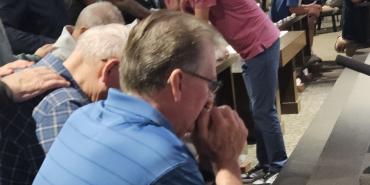One Size Doesn''t Fit All

We live in an increasingly fragmented world. The global map shows more countries than it did 20 years ago, and places like Iraq, Russia, and the Balkans still face smaller "break away" movements. Even within stable countries, deep political divisions abound.
Fragmentation also fills our everyday lives. We can choose from hundreds of TV channels, dozens of varieties of soft drinks and coffees, and more kinds of cell phones than you can count, all designed for diverse consumer tastes. From politics to entertainment to economics, one size doesn't fit all.
This fragmentation will only increase as people define themselves with smaller and smaller identities. Sometimes this is a result of associating with smaller geographical regions (being more "Welsh" or "Texan" than "British" or "American"). Sometimes fragmentation comes with tighter definitions of a community, which has led in Europe and North America to intense battles over immigration regarding who "belongs" in a country and who does not.
Still others define their communities by strict sets of ideas, and often members of the group view people who deviate from those beliefs with suspicion. All of this fragmentation stems from an increasing focus on the individual and has become a fundamental feature of our postmodern world.
People take their "right to be different" seriously, even while they want to be with others who are like them.
Even Christians are tempted to think this way. We are most comfortable in church with those who share our worship styles, musical tastes, theological perspectives, political ideas, and sometimes even race and language. We're tempted to think that "different" people need their own church, or at least a different service-especially if it keeps them from "bugging" us. But as the result of tailoring our ministries to increasingly diverse people, the church can seem even more fragmented than the world it is trying to serve and save.
If the world is falling apart, it is all the more important for the Church to pull together. We cannot let unimportant differences divide us. Unity in the Spirit has always been the hallmark of a healthy church, and the Church's God-given mission in the world depends on our working together in evangelism, discipleship, and compassionate ministry.
This does not mean everyone has to think and act alike, nor does it mean we must surrender our essential doctrines and beliefs. But it does mean prioritizing things that unite us over things that divide us. Paul provides a wonderful image of diversified unity when he speaks of the Church as the Body of Christ in 1 Corinthians 12. Bodies can excel as a unit because every part is different, yet still functions for the good of the whole. Bodies function all together, or they don't function at all.
Diversity is necessary.
As verse 17 points out, "If the whole body were an eye, where would the sense of hearing be?" However, the differences support one common mission-the life and health of the whole body. As we think about the future and our mission as a Church to testify to the gospel-both in word and in deed-we realize we must work on that sense of unity and actively resist the forces of fragmentation being foisted upon us. Within our own denomination, this looks like patient discussion over theological issues and realizing that we can live with some disagreements.
It also looks like cooperation between and within churches that have differences in culture and socioeconomic condition. As anyone who has been on a Work and Witness trip will attest, working and worshipping with Christians who are quite different from us gives a taste of the wonderful diversity we will find in heaven (Revelation 7:9).
Beyond our denomination, it means that we seek to work with, fellowship with, and even discuss theology, ministry, and Christian life with all who honor Jesus as their Lord and Savior. For example, Nazarenes need people like Baptists to remind them just how bad the problem of sin is. And Baptists need Nazarenes to remind them of the depth of God's grace in fixing the problem. We can learn about Christian life and ministry from Catholics and Quakers. And Catholics and Quakers can learn from us as well. We do not surrender our distinctives, nor do we define ourselves solely by them.
We can be ourselves, hold to our beliefs, and still appreciate and work with those whose beliefs differ from ours. In a world of fragmenting identities, people naturally fight over their differences, as we see every day in the news. The Church, however, cannot afford to do this. Part of our mission is to be united. If people see in the Church a more profound unity than they see anywhere else, this is a powerful testimony to the one true God, who destroys barriers, creates unity, and invites us into one common fellowship with Him.
Tim Crutcher is associate professor of church history and theology at Southern Nazarene University.
Holiness Today, July/August 2007
Please note: This article was originally published in 2007. All facts, figures, and titles were accurate to the best of our knowledge at that time but may have since changed.




